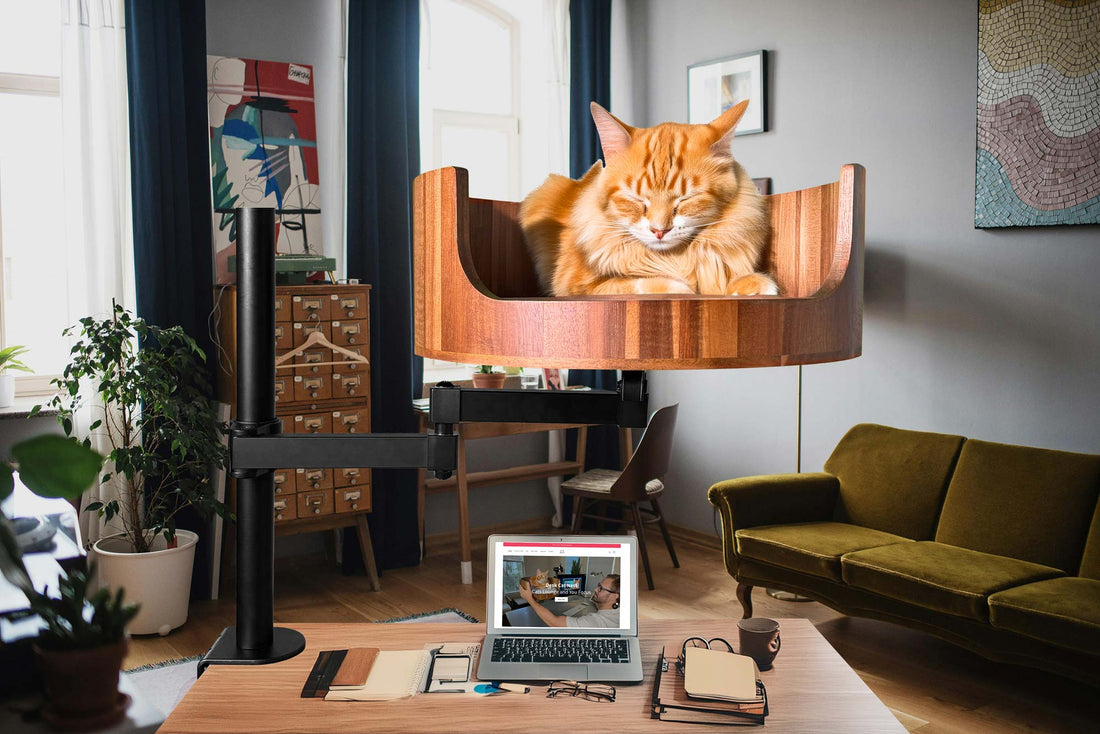
Why My Cat Eats Grass: Understanding Feline Behavior
Share
One peculiar behavior that many cat owners may notice is their feline friend munching on grass. While this may seem strange at first, there is actually a reason behind why cats do this. In this article, we will delve into the fascinating world of feline behavior and explore the reasons why your cat may be eating grass.
Cats, despite being domesticated animals, still retain many of their wild instincts. One such instinct is the need for plant matter in their diet. Grass provides cats with essential nutrients such as fiber and folic acid that aid in digestion and overall health. Additionally, grass can act as a natural laxative, helping cats to expel hairballs or other indigestible material from their system. Understanding why cats eat grass can not only help us better care for our furry companions but also deepen our bond with them as we connect with their natural behaviors.
1. Cats eat grass to aid digestion and help eliminate hairballs.
2. Grass provides key nutrients like folic acid and chlorophyll that are beneficial to feline health.
3. Eating grass is a natural behavior for cats, even those that are primarily indoor pets.
4. Cats may also eat grass to soothe an upset stomach or fulfill their instinctual need to forage.
5. Providing a safe, cat-friendly area for your pet to graze can enrich their environment and improve their overall well-being.
## Reasons Why Cats Eat Grass
Cats are obligate carnivores, which means they primarily need meat in their diet to thrive. However, many cats are also known to eat grass, which may seem unusual to some pet owners. There are several possible reasons why cats eat grass, including aiding digestion, providing essential nutrients, helping with hairball elimination, and instinctual behavior.
## Aiding Digestion in Cats
One of the main reasons why cats eat grass is to aid in their digestion. Grass contains fiber, which can help move hairballs and other indigestible materials through a cat's digestive tract. In some cases, eating grass may also stimulate vomiting, which can help clear out any toxins or irritants that may be present in the cat's system.
## Providing Essential Nutrients
Grass may also contain essential nutrients that cats need in their diet. Some cats may instinctively seek out grass as a source of vitamins, minerals, and other nutrients that may be lacking in their regular diet. By eating grass, cats may be supplementing their diet with these missing nutrients.
## Hairball Elimination
Cats are known for grooming themselves regularly, which can lead to the formation of hairballs in their digestive tract. Eating grass can help facilitate the elimination of hairballs by providing fiber to help move them through the digestive system. This can help prevent hairballs from causing blockages or other health issues in cats.
## Instinctual Behavior in Cats
Finally, eating grass may simply be a natural instinct for cats. In the wild, cats may have eaten grass or other plant materials as part of their diet. This instinctual behavior may still be present in domestic cats today, leading them to seek out and consume grass as a way to satisfy their natural instincts.
FAQs for Desk Cat Nest as a Solution for Why My Cat Eats Grass
Why do cats eat grass?
Many experts believe that cats eat grass to help with digestion or to add fiber to their diet. Grass can also act as a natural laxative for cats and help them expel hairballs.
Is it safe for my cat to eat grass?
In general, eating grass is safe for cats and is a common behavior. However, it's important to ensure that the grass your cat is consuming is not treated with any chemicals or pesticides.
Will the Desk Cat Nest help prevent my cat from eating grass?
While the Desk Cat Nest may provide a cozy and comfortable space for your cat, it may not necessarily prevent them from eating grass. However, providing alternative toys and activities for your cat may help redirect their behavior.
How can I discourage my cat from eating grass?
If you are looking to discourage your cat from eating grass, you can try providing indoor grass alternatives, such as cat grass or catnip plants. Additionally, ensuring that your cat's diet is balanced and meets their nutritional needs may reduce their desire to eat grass.
Are there health risks associated with cats eating grass?
In most cases, eating grass is not harmful to cats. However, some cats may develop an upset stomach or vomit after consuming grass. If you notice any abnormal or concerning behavior in your cat, it's best to consult with a veterinarian.
In conclusion, providing your cat with a Desk Cat Bed can help alleviate the need for your cat to eat grass. By offering a comfortable and cozy spot for your feline friend to rest and relax, they will be less likely to seek out grass as a source of comfort or digestion aid. With its soft padding and raised edges, the Desk Cat Bed offers a secure and inviting space for your cat to unwind, reducing the need for them to consume potentially harmful grass. Investing in a Desk Cat Bed not only benefits your cat's well-being, but also provides a stylish and functional addition to your home.


















































